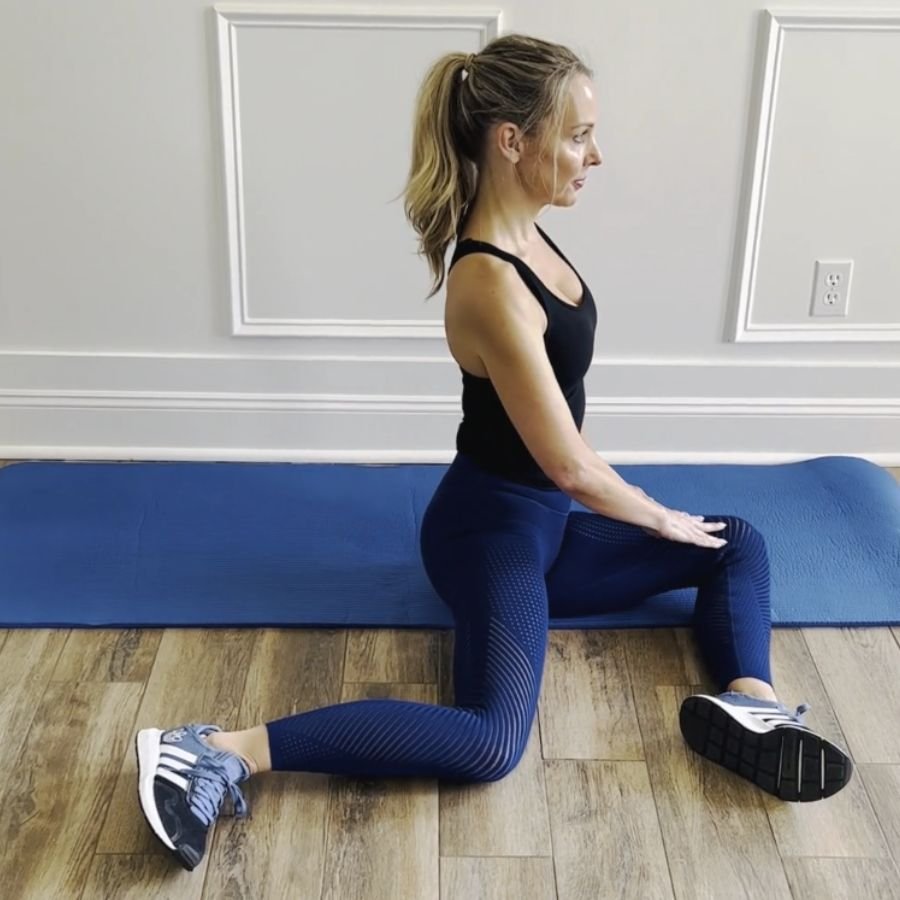3 Solutions for Painful Sex
Sex should not hurt! Many women experience pain during sex at some point in their lives, whether they’ve had children or not. Pain can occur due to a variety of pelvic floor conditions throughout all stages of life. Whether it is tightness in the pelvic floor muscles, scar tissue after a vaginal delivery, or tissue sensitivity during menopause, sex SHOULD NOT be painful and we have three solutions that can help!
Pose Featured Below: Deep Squat
1. Lube
An easy, immediate solution to pain during intercourse is a lubricant. A good quality lube is an important component to decrease pain during sex, although it won’t get rid of it entirely. We also know that not all lubes are created equally! Our focus should be on choosing a lube with quality ingredients (watch out for parabens and petroleum!) to help support a healthy vaginal environment.
The main types of lubricants that we recommend are water-based, silicone-based, and oil-based lubes. There are pros and cons to all of them so it’s important to determine which one will work best for you! For more information on choosing a safe and effective lube, check out our blog post, ‘What Lube Should I Use?’ and shop our favorite brands with the links below!
Pose Featured Below: Happy Baby
2. Pelvic Floor Relaxation and Stretching
Pelvic floor tone can be a major contributing factor to pain with sex, which is why relaxation of those muscles is the key to having better sex! To target the pelvic floor muscles, we want to focus on using our breath and relaxing all the surrounding muscles as well.
Belly breathing is a good start to promote relaxation throughout the entire body (and helps to calm the brain, too!). For guidance on how to belly breathe, check out Dr. Mary’s ‘Breathing to Enhance Relaxation’ video HERE!
In addition to belly breathing, these stretches can be extremely helpful in reducing pelvic floor muscle overactivity. Do these stretches daily and try to sneak them in right before having intercourse to help your muscles ‘warm up’!
Pose Featured Below: 90 90 Mobility
3. Pelvic Floor Physical Therapy
Pelvic Floor Physical Therapists are experts in all things about the pelvic floor muscles and more, and they are specially qualified to help manage and improve your sexual health! When you work with a Pelvic Floor PT, they will often assess and treat your pelvic floor muscles so that they aren’t as tight and painful. These specialists are trained in manual therapy, scar tissue treatment, and other common issues that can lead to painful and uncomfortable sex. Some physical therapists(like Revitalize) are also able to look at things like your stress levels, nutrition, and other lifestyle factors that can be contributing to your issues.
If you’re ready to have better sex, try these 3 solutions to stop having pain! If you need more guidance or are ready to start tackling your pelvic floor dysfunction, contact us today to begin working with a pelvic floor specialized physical therapist!





